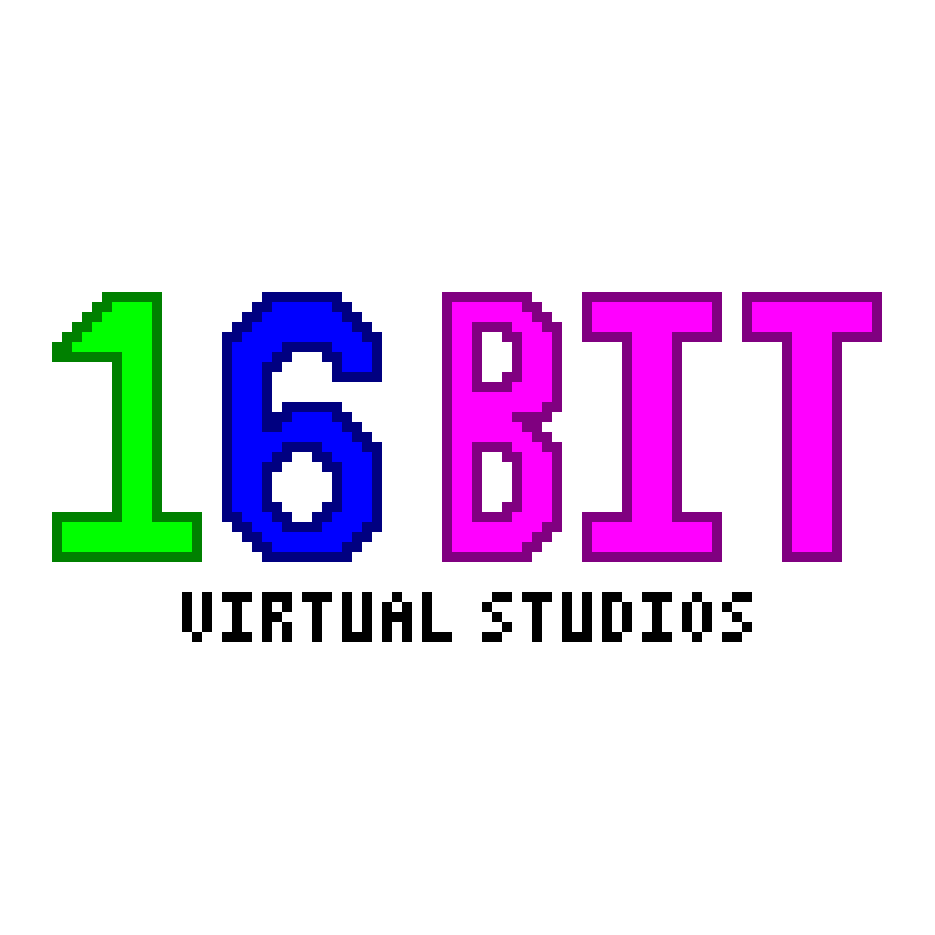Afternoon all.
I’m looking to make the switch away from Windows, and I wondered if people had any advice, distro suggestions and so on.
My main use cases for my PC are Gaming, Writing and Image editing. Things I’d love to have working are all my games, Epic, Steam, GoG and Game pass. I already use OpenOffice so I’m probably fine with that. And I currently use Photoshop, so a good alternative for that would be good. Finally Spotify, Discord and VPNs etc
Any and all help and suggestions would be welcomed, thanks in advance.
So from my personal experience I have a few pointer
Don’t dualboot because you’ll keep switching to windows instead of finding solutions to your issues that you inevitably will encounter
There is no replacement to Photoshop but you can do mostly all things with Gimp. It is just different and you’ll need to figure out how. This in itself can be very frustrating because you know how to do a thing in Photoshop but will need to learn it again in Gimp. This is part of it though and imo worth the time. Just like when you learned Photoshop
You may need to use the terminal a few times when you start but in the long run when things are setup you rarely need it unless you really want to mess with things under the hood. For me, I haven’t used the terminal for well over a year
I switched to Mint 2 years ago
Be patient and use the forums or discord servers. And also be thankful and kind to people offering their help for free. Try to find a solution first, and if that does not work, give them as much information as possible when asking for a question. In Linux, find system info and export the system information as a txt file. Share that whenever you ask questions
For best out of the box experience you may want to try Bazzite (https://bazzite.gg/), it will have pretty much everything included for gaming, except Microsoft Store as noted above. This system is harder to break by doing something stupid and has good documentation on their website.
Alternatively you may try a more traditional “batteries included” distribution like Ultramarine Linux or Linux Mint.
Bazzite or PopOS for Notebooks.
Everything should work out of the box, except maybe printers. But those should work with some help
I loved the vanilla Bazzite experience. A+. That being said, if you want to do pretty much any tinkering, you’re gonna have to roll up your sleeves. The atomic experience seems destined to be static. _
Went back to Linux Mint so I could experiment as I liked.
You can still tinker a fair amount, but it’s all very containerized. It’s a trade-off of stability for inflexiblity. I think most Windows users would prefer the first one however.
If the printer isn’t too old it should work fairly easily. I did get a 20 year old printer to work with Bazzite but it was a very fragile setup (so I just bought a new printer).
Game Pass doesn’t work on Linux. It could very easily, but M$ doesn’t want it to.
Everything else should be good to go.
The main image editor most people will recommend is GIMP, but depending on what type of image editing you’re doing, Krita might be better. They’re both available for Windows, so you can install them now and try them before you switch :)
GIMP is more like Photoshop, and can be made to look more like it with the PhotoGimp extention. Krita is more for digital drawing, but can be used for some photo editing too :)
you game pass/microsoft store games are probably fucked, but steam, epic, and gog all should work on linux just fine (except maybe those that need anticheat)
for steam just use the official client, and you can play epic and gog through the Heroic launcher which is actually significantly nicer than epic games launcher or whatever
the distro doesn’t matter really, just use mint or something
You’d recommend Heroic launcher over Lutris? Epic didn’t install via Lutris for me, but I haven’t got around to looking into it.
I use heroic because it uses an epic games store emulator instead of actually using the epic games store, and so it’s way faster and nicer than the shitty official binary running under wine or whatever (which is what lutris does)
Step 1) Find a Distro which you are comfortable with using. Over the years I’ve tried Fedora, Ubuntu, Debian, and Arch, and I’ve settled on Linux Mint since it’s familiar to me, but also easy to use and lots of forums with trouble shooting since it’s based on Ubuntu/Debian. Arch is my close second if you want the bleeding edge and are OK with stability.
Step 2) Find the right UI. Most distro’s default desktop environments are good, but I found Cinnamon and KDE Plasma to be perfect for me. If you are looking for a more Mac like experience Gnome is a good starting point too. Though you can customize any distro to look like any OS with enough time and effort.
Step 3) Software.
Games is a solved problem these days. Steam works natively and Proton is good enough for lie 99% of your games. You just need to enable it and you will be good to go. If you are playing non steam games, Heroic is a simple application which works, though if you are installing anything more complicated, i.e. a CD game Lutris is your friend. Not sure about gamepass as the Microsoft store is Windows exclusive.
Office Software: LibreOffice is installed by default on all OS’s and is based off of OpenOffice, but it’s actually still in development.
Photoshop: Yeah this is going to be your make or break it situation. Photoshop has no real substitute in linux. GIMP isn’t bad, but is only good for image manipulation not creation. Kirta is more of an art studio rather than Photoshop. What I personally do is a lot of work. Affinity Photo is a close second place for Photoshop but it’s Mac/Windows only. Good News, with Proton you can run it. Bad News it’s a pain in the rear to do so. I strongly suggest Bottles and the ElementalWarrior build of Wine to get it working there are some guides on how to do it. But again it’s a pain in the rear.
In some regards how I get around Windows Limitation is just have a virtual machine with windows on it to run when I need it. Doesn’t need much power and I use it when I need it. I…e backing up my iPhone or sending music files to it.
- Opensuse, or Fedora/Bazzite.
- Steam for steam, Heroic for the Rest.
- Gimp/Krita
- Spotify, discord, etc is just a Web app, but I recommend Freetube
- Mullvad as VPN.
Something that can make the switch easier is that, like with OpenOffice, many alternatives can be used before you switch as they’re cross platform :)
So if you need a replacement for Photoshop, you can start learning it before you’re also simultaneously learning linux. Gimp has a modified version to make it more like Photoshop I know many folks like, that might be worth exploring
The other alternative would likely be krita, which is generally better regarded for its comparative competency as a project, but is more aimed at illustration than photo editing, so it may not be able to meet your needs
Discord works cross platform, I think most VPNs do too, but I could be mistaken
On the distro front, my votes go to mint and fedora. That gives you a wide range of desktops to choose from, try them out by booting from a flash drive and pick what you like. Most distro stuff is about living with the os long term, but the desktop will immediately feel alien or like home. And maybe you like alien! That can be fun, but it really depends on you.
Fedora comes with some asterisks like not making non-free software available by default, including things like drivers and media codecs. That can be a pain to deal with as a new user. And the community isn’t super newbie focused. Mint is great, but doesn’t offer either of the biggest desktop environments that you might wanna use, and I have less personal experience with it.
Open suse also has an exceptional reputation, but I’m less familiar with it. Pop os many folks like, but my experience with it has unfortunately always been kinda buggy and rough around the edges, your milage may vary.
I’m curious why I never see Ubuntu recommended in these kind of questions. I do see people suggest Ubuntu-based, but then name Mint or others and not an Ubuntu variant. Is it strictly a Canonical dislike or anti-snap thing, or something else? The reason I ask is that I’ve tried many different distros over the years on and off, but this time when I went all in because of Microsoft’s pressure, I went with Ubuntu 22.04, and it’s been flawless. So it just seems weird that it’s never named while others that I know of but seem very niche are mentioned.
Ubuntu installs snap version of Firefox by default which for me had issues accessing files on my home folder so downloading files was weird. After installing normal version from Mozilla everything worked fine until during an update Ubuntu would switch back to snap version without asking. If I wanted my OS to do things behind my back I would just use Windows.
Long-time (and current) Ubuntu daily-driver here. When I first started dabbling 20 years ago, Ubuntu had unparalleled out-of-the-box driver support for things that required third-party drivers. It gave them an era of dominance that had a secondary effect of “if I have a Linux problem and Google it, Ubuntu guides are the most likely to exist” which kept me using it to this day. Is it the best? Probably not, but I have twenty years of automation built around it and it’s comfortable.
The people that still use it today are the functional tinkerers. I don’t generally engage with these threads because I assume that every user making these posts isn’t searching for the answers that are already out there in previous threads. The paths that lead to Ubuntu aren’t the same paths that the “I use arch btw” people take. It’s a case of the kinds of users that choose Ubuntu, don’t go out of their way to interject that they’re Linux people. We’re just regular people that don’t want an adversarial relationship with our operating system.
Snap, esm, Ubuntu pro, they all get out of your way with a simple command or single line in a config file, and they respect the same signaling they’ve used since each product’s inception. I want a product that is both open-source and financially sustainable, because it leads to stability in my life. If windows had easily togglable telemetry and functional automation I would never have switched in the first place.
Your point of Ubuntu guides is one reason why I settled on Ubuntu this time around. I didn’t want to have to dig deeper to make things work when there’s usually Ubuntu install instructions. Granted they can often be just .deb, but Debian is a bit too far for me (I tried it a number of years ago and it was too “Linux” for me. But Mint (which I do like, and actually have on a spare laptop) is too Windows-like and doesn’t feel like I can alter it like I want. I guess I’m just saying that Ubuntu has always hit that sweet spot for me, and this time around I’ve stuck with it and very rarely boot into Windows now. So when I see everyone recommending everything else but not mine, I wonder if I missed a memo.
I wonder if I missed a memo.
Ubuntu isn’t really made for regular users, canonical doesn’t care about you, they’re in it for the server / enterprise money; they’ll regularly take decisions that go against your best interest like pushing snaps and adding ads to the terminal.
These days you don’t need .deb files with how ubiquitous flatpaks are becoming so there’s no real reason to stick to ubuntu anymore. If you like the ubuntu release model, fedora should be the closest alternative. It’s still sponsored by a corporation, but they have a loose hand over the distribution.
I like the long-term overlapping security release that server-first focus gives me. I rely on it even. My daily driver is built from Ubuntu server headless LTS, X11, Awesomewm. My automation really only needs updates every 5 years, and I get the option to update it every 2. The same script I wrote to remove the esm motd message 10 years ago still works. I don’t know what else people want from canonical.
I agree that Ubuntu is a solid distro and would recommend it before Mint, it’s just not at the top of the list anymore. But if you’re happy with what you have, that’s all that matters.
I was going to switch to Nobara soon because it’s supposed to have all the graphics card drivers out of the box, etc. The only thing holding me back is I’m afraid it’s going to be difficult to get SolidWorks working right. I love base Debian though, and Ubuntu is very popular.










